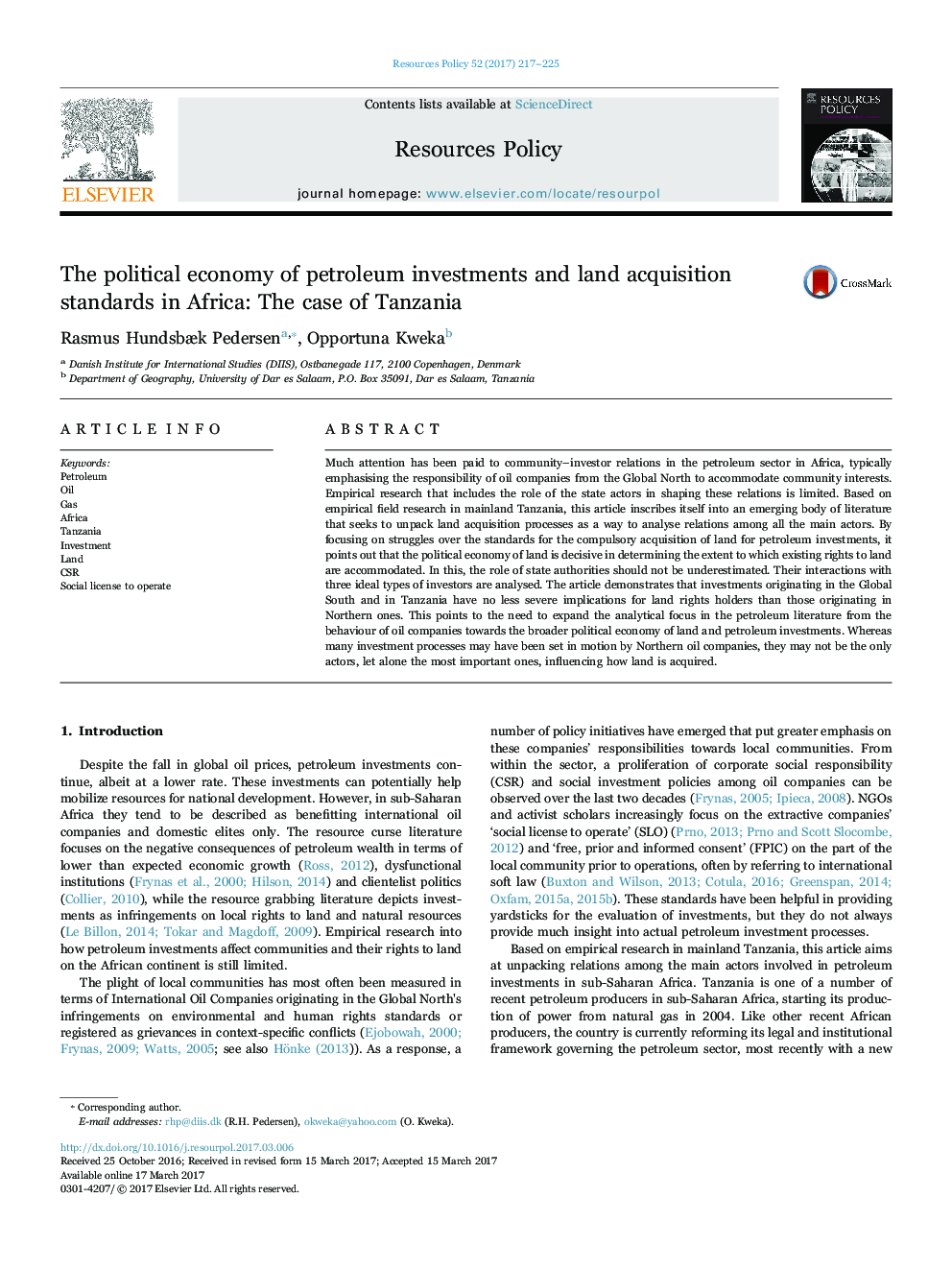| Article ID | Journal | Published Year | Pages | File Type |
|---|---|---|---|---|
| 5104207 | Resources Policy | 2017 | 9 Pages |
â¢Research into the role of the state in shaping company-community relations is limited.â¢The political economy of land is decisive for how land is acquired for investments.â¢Too little attention has been paid to domestic and Global South investors.
Much attention has been paid to community-investor relations in the petroleum sector in Africa, typically emphasising the responsibility of oil companies from the Global North to accommodate community interests. Empirical research that includes the role of the state actors in shaping these relations is limited. Based on empirical field research in mainland Tanzania, this article inscribes itself into an emerging body of literature that seeks to unpack land acquisition processes as a way to analyse relations among all the main actors. By focusing on struggles over the standards for the compulsory acquisition of land for petroleum investments, it points out that the political economy of land is decisive in determining the extent to which existing rights to land are accommodated. In this, the role of state authorities should not be underestimated. Their interactions with three ideal types of investors are analysed. The article demonstrates that investments originating in the Global South and in Tanzania have no less severe implications for land rights holders than those originating in Northern ones. This points to the need to expand the analytical focus in the petroleum literature from the behaviour of oil companies towards the broader political economy of land and petroleum investments. Whereas many investment processes may have been set in motion by Northern oil companies, they may not be the only actors, let alone the most important ones, influencing how land is acquired.
